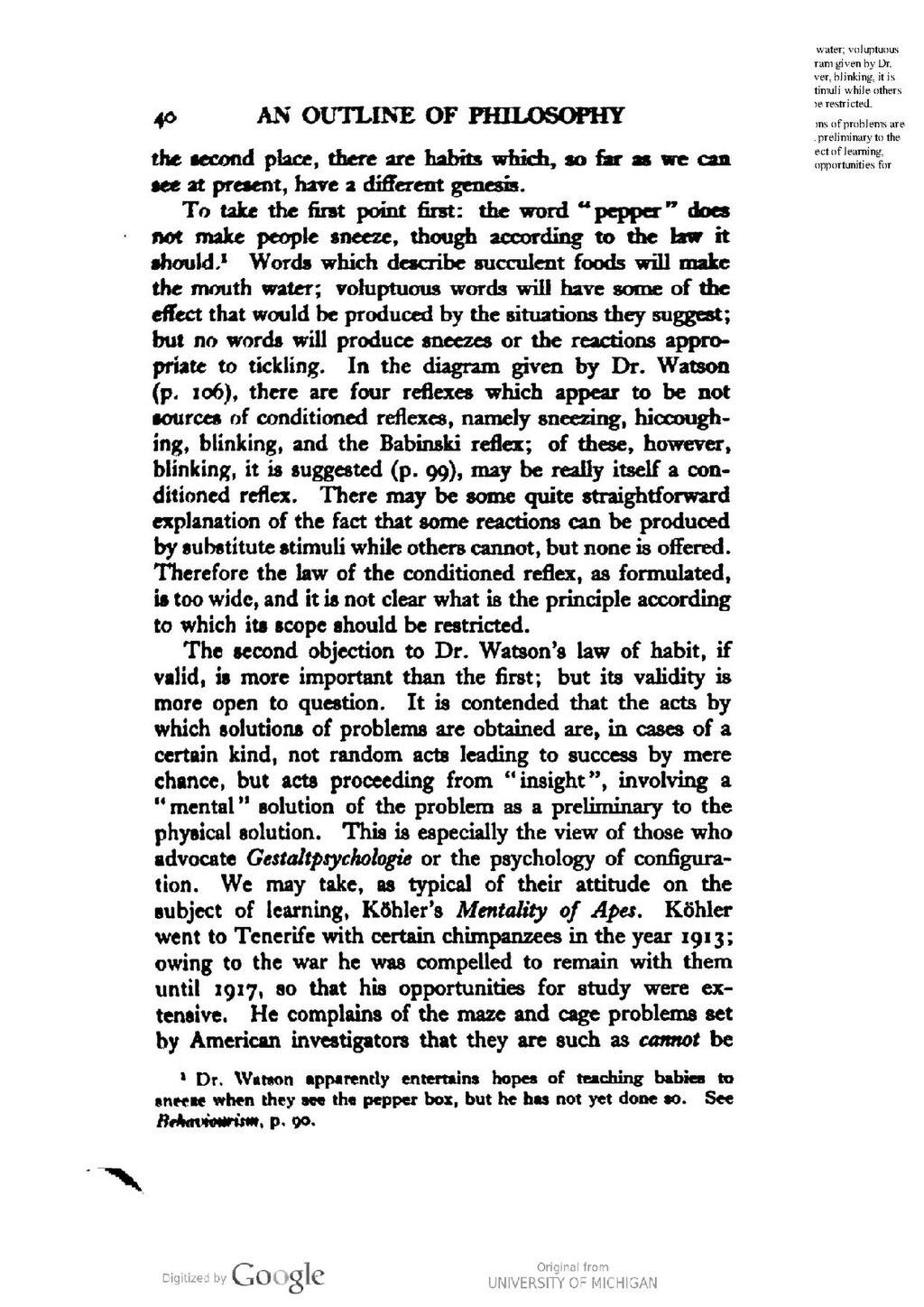the second place, there are habits which, so far as we can see at present, have a different genesis.
To take the first point first: the word "pepper" does not make people sneeze, though according to the law it should.[1] Words which describe succulent foods will make the mouth water; voluptuous words will have some of the effect that would be produced by the situations they suggest; but no words will produce sneezes or the reactions appropriate to tickling. In the diagram given by Dr. Watson (p. 106), there are four reflexes which appear to be not sources of conditioned reflexes, namely sneezing, hiccoughing, blinking, and the Babinski reflex; of these, however, blinking, it is suggested (p. 99), may be really itself a conditioned reflex. There may be some quite straightforward explanation of the fact that some reactions can be produced by substitute stimuli while others cannot, but none is offered. Therefore the law of the conditioned reflex, as formulated, is too wide, and it is not clear what is the principle according to which its scope should be restricted.
The second objection to Dr. Watson's law of habit, if valid, is more important than the first; but its validity is more open to question. It is contended that the acts by which solutions of problems are obtained are, in cases of a certain kind, not random acts leading to success by mere chance, but acts proceeding from "insight", involving a "mental" solution of the problem as a preliminary to the physical solution. This is especially the view of those who advocate Gestaltpsychologie or the psychology of configuration. We may take, as typical of their attitude on the subject of learning, Köhler's Mentality of Apes. Köhler went to Tenerife with certain chimpanzees in the year 1913; owing to the war he was compelled to remain with them until 1917, so that his opportunities for study were ex- tensive. He complains of the maze and cage problems set by American investigators that they are such as cannot be
- ↑ Dr. Watson apparently entertains hopes of teaching babies to sneeze when they see the pepper box, but he has not yet done so. See Behaviourism, p. 90.
